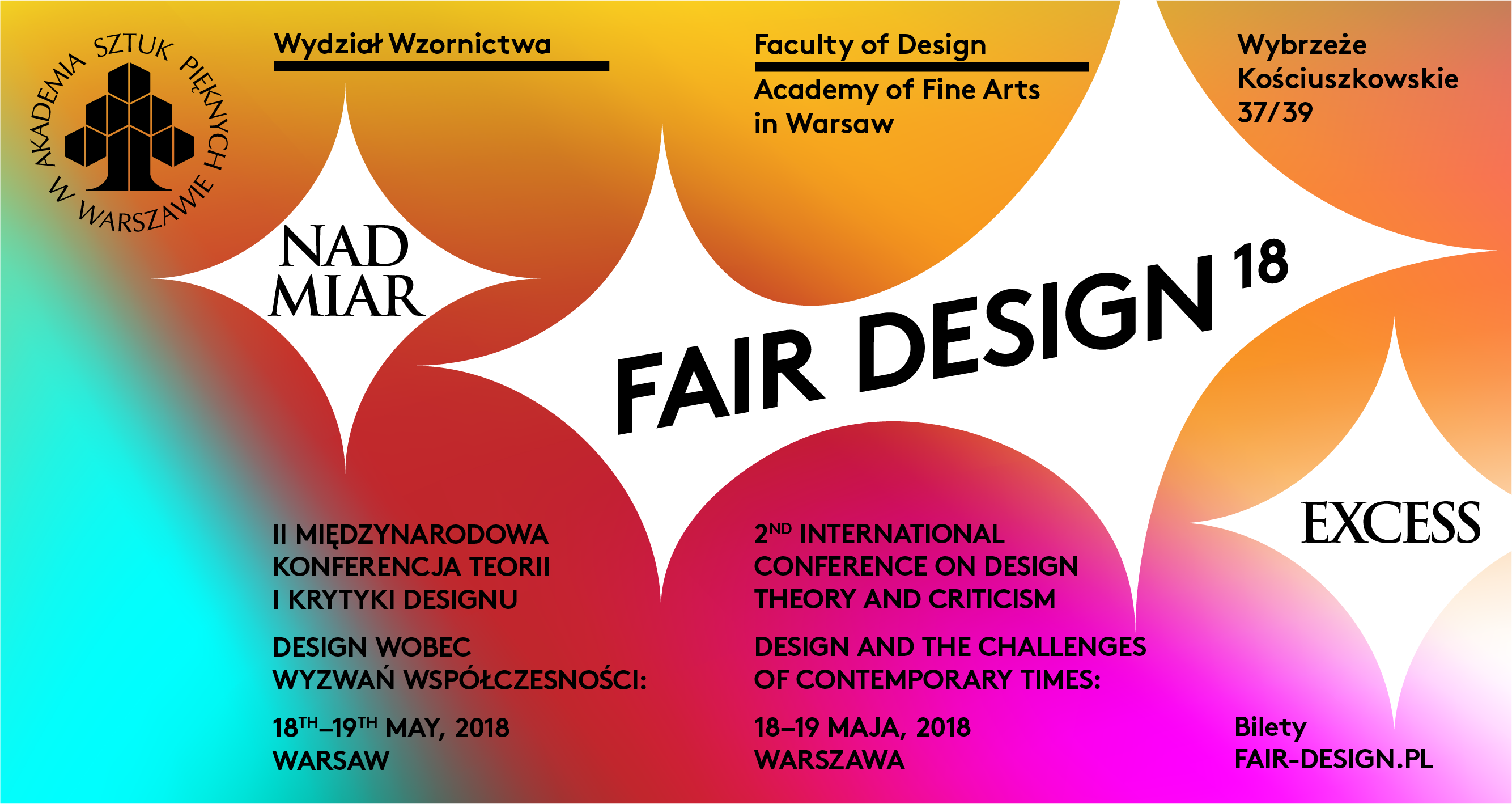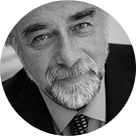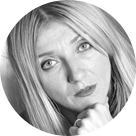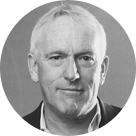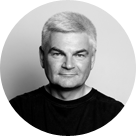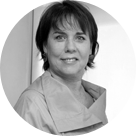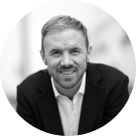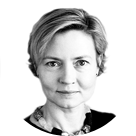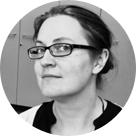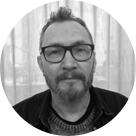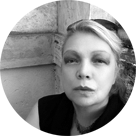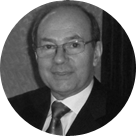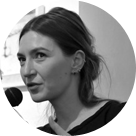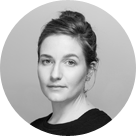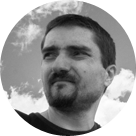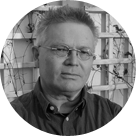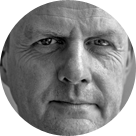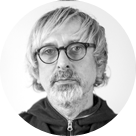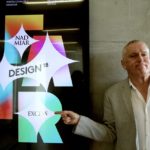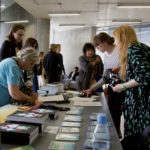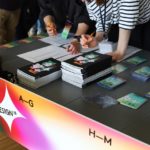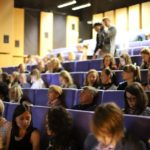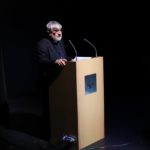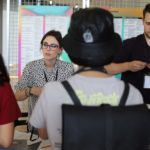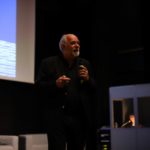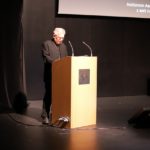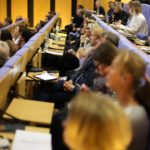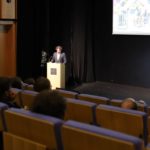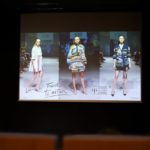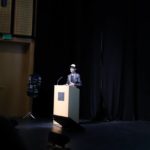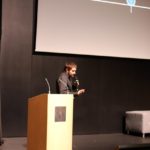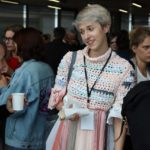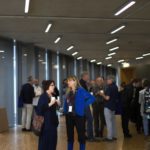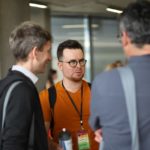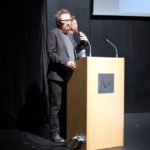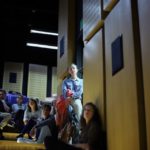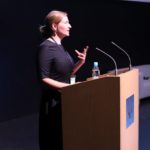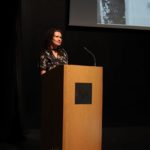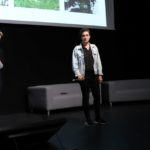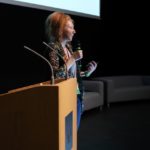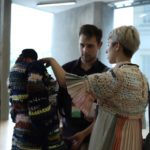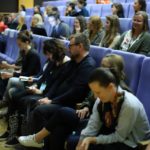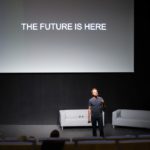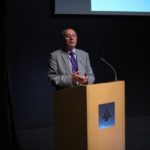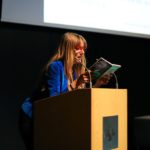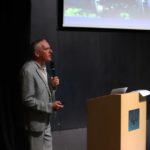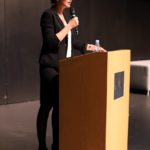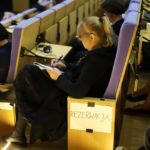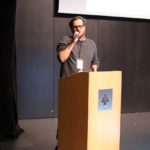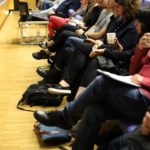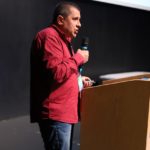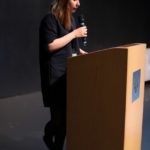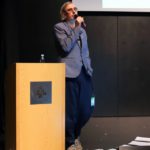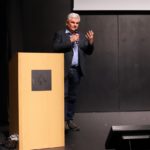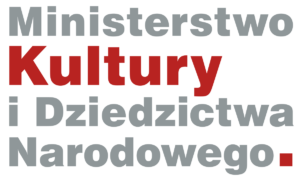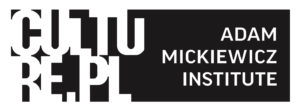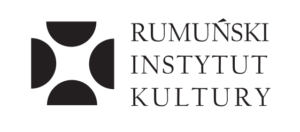Theme
FAIR DESIGN 2018 | EXCESS
Ever since man has conquered the Earth, the scale of the effect on his environment has been increasing. The population is steadily growing (every eight years there are a billion more of us). The development of cities is matched by the spread of slums, there are more and more buildings, cars, household objects, services, there is more innovative technology, and the virtual realm is full of more and more data. Famine, poverty, and garbage are also on the rise. Designers are the spectators, but also the actors (and perhaps even the directors and the set producers) of this performance. Various design disciplines intersect in all aspects of man’s existence – from design of public space or means of transportation, to designing mobile applications, bank services, or experiences. Never before have designers had such great opportunities before them; never have they borne such responsibilities.
Excess is the word that describes the condition of the modern man. Alongside the satiation felt by the citizens of “developed countries,” billions of others are oppressed by poverty, famine, and homelessness. Though feelings of satiety and non-satiety are subjective, on a societal scale the presence of these phenomena indicates the extent to which the modern world lacks harmony – it has fallen into extremes. Economic instability in times of globalization means an unbalanced global economy. Economic crisis becomes the norm. Social stratification is growing, extreme poverty and unfathomable wealth are becoming exasperated. Excess breeds shortage, and the reverse. Societies that have experienced famine have a tendency toward oversatiety, they deal with their fear of shortage by creating artificial excess. Meanwhile, the consumer societies that suffer from this oversatiety seek solutions in strategies like reduction, re-using, selection, elimination, slow-life, minimalism, and conscious restriction of consumption.
Every second several dozen gigabytes of new data flood the Internet. The phenomenon of overproduction of information and services and the unlimited access to them makes us helpless in the face of the vast quantities we are unable to consume or process. Our problems become making decisions, focusing on something that really has significance. We are constantly faced with an excess of objects, and the pressure of the new never subsides – things with short shelf-lives are forever pushing aside those that are built to last. The issue of famine remains unsolved, yet tons of food end up in the garbage piles. Our world of start-ups and corporations has given rise to a sort of hysteria that manifests itself in intensified work on innovative solutions. We suffer of an excess of ideas, religions, books, and even scientific breakthroughs.
Designers take various approaches to the tyranny of excess: some just design more objects and services, others try to smuggle in concepts that urge us to reflect and change our behavior. How can designers deal with excess, given that they are a large part of the problem? The theories of design developed in the twentieth century ignored these issues. Design methodology was mainly focused on efficiency, functionality, and aesthetic quality. For this discussion we have invited designers and figures from the social sciences: philosophers, sociologists, anthropologists, and economists. We believe that the conference will create a space for a trans-disciplinary exchange of opinions.
download the information >>> FAIR DESIGN 2018 EXCESS
Speakers
Programme
2nd INTERNATIONAL CONFERENCE ON DESIGN THEORY AND CRITICISM
FAIR DESIGN 2018: EXCESS
Day 1 | FRIDAY, 18 May
9.15-10.00 – registration of the conference participants
10.00-10.30 – Opening Session
10.00-10.10 – official opening of the Conference – Prof. Adam Myjak, Rector, Academy of Fine Arts in Warsaw
10.10-10.20 – welcome speech – Prof. Ksawery Piwocki / Dean of Faculty of Design, Academy of Fine Arts in Warsaw
10.20-10.30 – welcome speech – Dr. Magda Kochanowska / Programme Board of the Conference, Department of Design History and Theory, Faculty of Design, Academy od Fine Arts in Warsaw
10.30-11.00
Prof. Bruce Brown / Royal College of Art in London (Great Britain)
Design, Distraction and Dignity (keynote speaker)
11.00-12.10 – The First Session
11.00-11.20 – Dr. Józef Mrozek / Academy of Fine Arts in Warsaw (Poland)
Excess as a Dream
11.20-11.30 – Dr. hab. Piotr Mikołajczak / Academy of Fine Arts in Gdansk (Poland)
Second-hand Things
11.30-11.40 – Maria Szolc / Academy of Fine Arts in Warsaw, student (Poland)
An Excess of Clothing
11.40-11.50 – Dr. Szymon Hanczar / Academy of Fine Arts in Wroclaw (Poland)
Minimizing Needs – “13m²”
11.50-12.10 – discussion
12.10-12.30
Dr. Daniel Zieliński / Academy of Fine Arts in Warsaw (Poland)
Balancing Feedback
12.30-13.20 – lunch break
13.20-13.50
Johnny Friberg i Karl-Johan Ekeroth / Gothenburg University (Sweden)
Form Follows Fiction
13.50-15.00 – The Second Session
13.50-14.10 – Agata Nowotny / researcher and consultant (Polska)
More or Less – On Industrial Strategies in Minimalist Times
14.10-14.20 – Magdalena Kasprzyca / Academy of Fine Arts in Wroclaw (Poland)
Excess – How to Turn Loss into Profit
14.20-14.30 – Zuzanna Gronowicz i Barbara Motylińska / product designers
Shoetopia. Parametric Shoes
14.30-14.40 – Katarzyna Moszczyńska / Academy of Fine Arts in Warsaw, student (Poland)
FORGOTOR: Design for a Harmless Computer Virus
14.40-15.00 – discussion
15.00-15.20 – coffee break
15.20-15.50
James Wallman / futurist, writer and consultant (Great Britain)
Stuffocation (keynote speaker)
15.50-16.30 – The Third Session
15.50-16.10 – Prof. Bogumiła Jung / University of the Arts Poznan (Polska)
Electricity Factor
16.10-16.30 – Dr. Maciej Konopka / Academy of Fine Arts in Warsaw (Poland)
Packaging Problems
16.30-16.50
Prof. med. Tadeusz Płusa / Łazarski University in Warsaw (Poland)
The Excess of Medicine and Health
16.50-17.10
Dr hab. Jarosław Kozakiewicz / Academy of Fine Arts in Warsaw (Poland)
Critical Architecture: design strategies and artistic practices against the effects of excessive industrialization and spatial urbanization
17.10-17.30
Anna Bernagozzi / École Nationale Supérieure des Arts Décoratifs (France)
Beyond Design (keynote speaker)
Day 2 | SATURDAY, 19 May
9.00-9.25 – morning coffee
9.25-9.30 – opening of the second day of the Conference
9.30-10.00
Prof. James Woudhuysen / journalist, author of books (Great Britain)
The Challenge of New Sectors of Production (keynote speaker)
10.00-10.20
Rucsandra Unda Popp / National University of Arts in Bucharest (Romania)
Excess for Success
10.20-11.50 – The Fourth Session
10.20-10.40 – Dr. Katarzyna Kasia / Academy of Fine Arts in Warsaw (Poland)
Boredom in Times of Excess
10.40-11.00 – Paweł Starzec / University of Warsaw, Silesian University in Opava
Damming the Flood: Media and Particular Images in the Era of Fake News and the Democratization of Communication
11.00-11.20 – Marcin Wicha / graphic designer, writer (Poland)
“Anything Can Come in Handy” as a Graphic Design Motto
11.20-11.30 – Anna Szlachta / Academy of Fine Arts in Krakow, student (Poland)
The excess of information and the ability to learn. The design of a set of components building the skills to acquire knowledge
11.50-12.10 – coffee break
12.10-12.30
Adélia Borges / design critic, historian, curator (Brasil)
A Southern Hemisphere Point of View (keynote speaker)
12.30-12.50
Dr. Paula Quinon / Lund University (Sweden)
Designing Smart Society
12.50-13.10
Janusz Noniewicz / Academy of Fine Arts in Warsaw (Poland)
The Excess of Design and the Demon of Persuasion (against Nature, against the Economy)
13.10-13.40
Edwin Bendyk / journalist, reporter, writer (Poland)
In the Shadow of Maslow’s Pyramid: The Riddle of Human Needs (keynote speaker)
13.40-14.00 – summing up and offcial closing of the conference
Venue
Academy of Fine Arts in Warsaw, 37/39 Wybrzeże Kościuszkowskie Str. Warsaw
The conference FAIR DESIGN 2015 will take place in the auditorium of the recently erected Academy’s building at 37/39 Wybrzeże Kościuszkowskie Str. It was built as an extension of the old edifice, designed by Alfons Gravier in 1911. The enlargement was executed by the renowned Warsaw studio JEMS Architects. On the premises are loctated the faculties of: Sculpture, Stage Design, Conservation and Restoration of Works of Art, and Management of Visual Culture. Within easy reach there are also the Copernicus Science Centre and the Fryderyk Chopin Museum. Other buildings belonging to the Academy of Fine Arts are located in different parts of the city.
Organizer
Department of Design History and Theory
Faculty of Design, Academy of Fine Arts in Warsaw
The Faculty of Design, Academy of Fine Arts in Warsaw, is one of the most important design schools in Poland, specializing in teaching product design, visual communication and fashion design. The subjects of study are diverse, and include applied art and design issues in modern and advanced technologies that are up to date or ahead of their time. The curriculum of the Faculty includes also research projects, focused on current problems of our civilization. All the hands-on design activities are assisted by the Dept. of Design History and Theory. Its mission is to educate on history, theory and criticism of design by organizing seminars, lectures, exhibitions, consultations and by conducting MFA theses. The Faculty of Design, Academy of Fine Arts in Warsaw, was ranked #13 in the Red Dot Design Ranking 2013: Universities in Americas and Europe.
The organization of the conference is supported by a group of great volunteers:
Michał Bułas
Bartłomiej Gołębiowski
Agata Małek
Katarzyna Moszczyńska
Marlena Norowska
Tamara Olbrys
Anna Palusińska
Magdalena Pawelec
Bartłomiej Rey
Andrzej Sienkiewicz
Zuzanna Romanowska
Teresa Soldenhoff
Antonina Ulatowska
Joanna Wosążnik
Programme Board
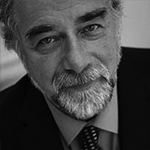
prof. Bruce Brown, Royal College of Art in London (Great Britain)
Bruce Brown is Visiting Professor at the Royal College of Art in London. Previously he was Pro-Vice-Chancellor for Research at the University of Brighton, Dean of the Faculty of Arts and Humanities and Professor of Design. He was selected by the Funding Councils for England, Northern Ireland, Scotland and Wales to chair the Main Panel responsible for Arts and Humanities in the UK Research Excellence Framework 2014. He recently has worked for organizations in Austria, Portugal, Hong Kong, and Israel and lectured widely on research in the arts. He is an editor of Design Issues Research Journal and a Fellow of the Royal Society of Arts.
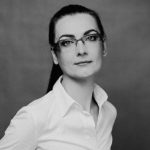
Dr. Magda Kochanowska / Design Faculty, Academy of Fine Arts in Warsaw, History and Theory of Design Department
A designer by education, she is also the author of numerous publications on design in specialist and popular magazines. She has been affiliated with the Academy of Fine Arts in Warsaw Faculty of Industrial Design since 2005, where she works as an assistant professor. She defended her PhD in 2010. For many years she was an editor for the 2+3D design quarterly. In 2011-12 she lectured at Universidad Europea de Madrid. She explores design theory, criticism, and methodologies. She has made Polish and international exhibition designs both in Poland and abroad. In 2014 she created Polish Job – an exhibition of Polish design for Design Week in Milan. She was the general curator for the Polish design presentation at the Second Design Biennial in Istanbul in 2014. In 2016 she made the exhibition of Polish design for the 21st Triennale di Milano.
Contact: magda.kochanowska@asp.waw.pl
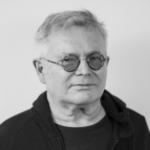
Dr. Józef A. Mrozek / Design Faculty, Academy of Fine Arts in Warsaw, History and Theory of Design Department
He has worked for the Academy of Fine Arts in Warsaw since 1978; until 2004 in the Interdepartmental History and Theory of Art Chair, from 2005 to 2016 he was head of the History and Theory of Design Chair in the Faculty of Design. He has lectured at many foreign academies, chiefly in the USA and in Great Britain. In 1999-2003 he was editor-in-chief of Meble Plus magazine, and contributed to the 2+3D grafika plus produkt quarterly. He has written numerous publications on industrial design, applied arts, and architecture. He is a member of the Society of Art Historians and the Design History Society.
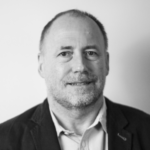
Prof. Michał Stefanowski / Design Faculty, Academy of Fine Arts in Warsaw, Design Department
He is a designer of products, small architectural forms, packaging, information systems, and visual communication. He is presently part of the INNO+NPD design team. He has created or jointly created the designs for dozens of products, five information systems, and numerous graphic and image designs. He co-designed the Municipal Information System in Warsaw, information systems for the University of Warsaw Library and the Royal Castle in Warsaw, and the visual ID for the Polish National Bank. He has written articles on industrial design, curated exhibitions, and has been a juror at competitions. He is the Vice Chair of the SPFP (Industrial Designers’ Association), and a member of the BEDA (Bureau of European Design Association) board. He is a member of the Work Group for the Ministry of the Economy, 19 National Intelligence Specialization. He has been a consultant for the European Commission and the Head of the Faculty of Design at the Academy of Fine Arts in Warsaw.
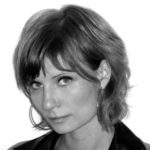
Dr. Monika Murawska / Faculty of Media Arts and Stage Design, Academy of Fine Arts in Warsaw
She graduated in philosophy and art history from the University of Warsaw, where she mainly explored film history. She studied at Université Paris X Nanterre and Katholieke Universiteit Leuven. In 2008 she defended her PhD at the University of Warsaw on contemporary French phenomenology. She is a three-times French Government scholarship winner, secretary of the Przegląd Filozoficzno – Literacki board of editors, and a member of the Polish Phenomenology Society. She translates from French. Her writings include Problem innego [The Problem of the Other, 2005] and Filozofowanie z zamkniętymi oczami [Philosophizing with Eyes Closed, 2011] as well as numerous articles on the phenomenology of art.
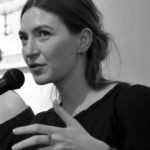
Dr. Katarzyna Kasia / Faculty of Visual Culture Management, Academy of Fine Arts in Warsaw
Philosopher, graduated at the Faculty of Philosophy and Sociology of Warsaw University, granted with the scholarships of Ministry of Foreign Affairs of the Italian Republic and of the Kosciuszko Foundation, visiting scholar at Princeton University. Deputy Dean of the Department of Visual Culture Management, Chair in Art Theory at Warsaw Academy of Fine arts.
Author of the book “Formative Craft. Luigi Pareyson’s aesthetics of formativity”, translator of the texts of the Italian philosophers (Pareyson, Vattimo and others).
Partners
The conference is part of a part of the project „Art for business and society, or the Art of Innovation:
40th Anniversary of the Faculty of Design of Academy of Fine Arts in Warsaw”
implemented under the Ministry of Science and Higher Education „DIALOG” Program for 2018.

Project Partners
Honorary patronage of the Minister of Culture and National Heritage
The conference is co-organized by the Adam Mickiewicz Institute operating under the Culture.pl
brand and is part of its program promoting Polish design worldwide.
Culture.pl: Global Promotion of Polish Design
The Adam Mickiewicz Institute, a state-funded cultural institution, is responsible for promoting Poland and Polish culture abroad. Under the Culture.pl brand, we present high quality initiatives and events in the fields of music, art and design. Culture.pl is a daily updated information service on the most interesting Polish cultural events around the world. It is also the largest and most comprehensive source of knowledge about Polish culture. A special tab on design presents the latest trends in contemporary Polish design and the newest projects from Polish designers. The promotion of Polish design, carried out on a wide global scale, is one of the operational priorities of the Adam Mickiewicz Institute. Design is the platform for presenting contemporary Polish culture and promoting Polish creativity. The key to success is the fruitful cooperation with reputable partners such as Ventura Lambrate (Milan), London Design Festival, Maison&Objet (Paris), Paris Design Week, DW! Sao Paulo Design Weekend, Inno Design Tech Expo (Hong Kong), Business of Design Week (Hong Kong), Istanbul Design Week, International Furniture Fair Singapore, Design Trade Copenhagen, International Contemporary Furniture Fair (New York), Wanted Design (New York), Stockholm Furniture and Light Fair, What Design Can Do! (Amsterdam), Dutch Design Week (Eindhoven) and Wallpaper*.
The conference is organized in cooperation with
The Association of Industrial Designers (SPFP)
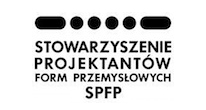
The Association of Industrial Designers (SPFP) is the most important organization associating professionals in the field of design in Poland. The association was found in 1963. It is a member of BEDA – Bureau of European Design Associations (from 2005). In the years 1964-2011 belonged to ICSID – the International Council of Societies of Industrial Design.
Special thanks to the Romanian Institute of Culture in Warsaw
for supporting and organizing of the lecture’s visit of Prof. Rucsandra Unda Popp
Media Partners
About Fair Design
INTERNATIONAL CONFERENCES ON DESIGN THEORY AND CRITICISM „FAIR DESIGN”
In 2015, the Warsaw Academy of Fine Arts started to organize a series of conferences dedicated to the theory and criticism of design in terms of its functioning in the quickly changing social, cultural, economic and other circumstances. The conference is intended to serve as a forum for discussions which could stretch beyond the professional designer circles.
Such opinion exchange, ongoing in the world for quite some time now, is an opportunity for design theoreticians and practitioners to better understand the objectives, methods and strategy of designing both today, and in the nearest future. The notion of design is ever more often perceived in terms of a “design culture”, and for that reason the discussions have come to involve a whole range of specialists from other disciplines, such as philosophy, sociology, economics, or anthropology of culture. In Poland, however, such debate is still virtually non-existent, and the opinion exchange platform is limited to publications in academic and professional press, as well as popular weeklies or dailies. These texts are rarely exposed to a differing reflection or solid criticism, hence they do not provoke any genuine intellectual exchange, nor do they help shape a complex set of opinions on the state of the design today.
In light of the above, the series of FAIR DESIGN conferences, dedicated to design theory and criticism, could trigger a debate on defining or applying research tools for the description and analysis of the changes taking place in contemporary design. We hope that such meetings could help in the opinion exchange among theoreticians representing different disciplines and design practitioners. We expect the theoreticians to provide us with a description of the state of contemporary society from the viewpoint of the humanities and social sciences (including those dealing with design theory), while from the practitioners we expect to share with us their thoughts on their own experiences of designing in the unstable world of today. We invite to the conference both design professionals, as well as people representing the art world, philosophers, anthropologists, or economists. We would expect our guests to share with us their thoughts on the quickly changing relations in culture, politics, the society and – obviously – in design. The papers are delivered in Polish and English (with simultaneous interpretation).
contact: info@fair-design.pl

